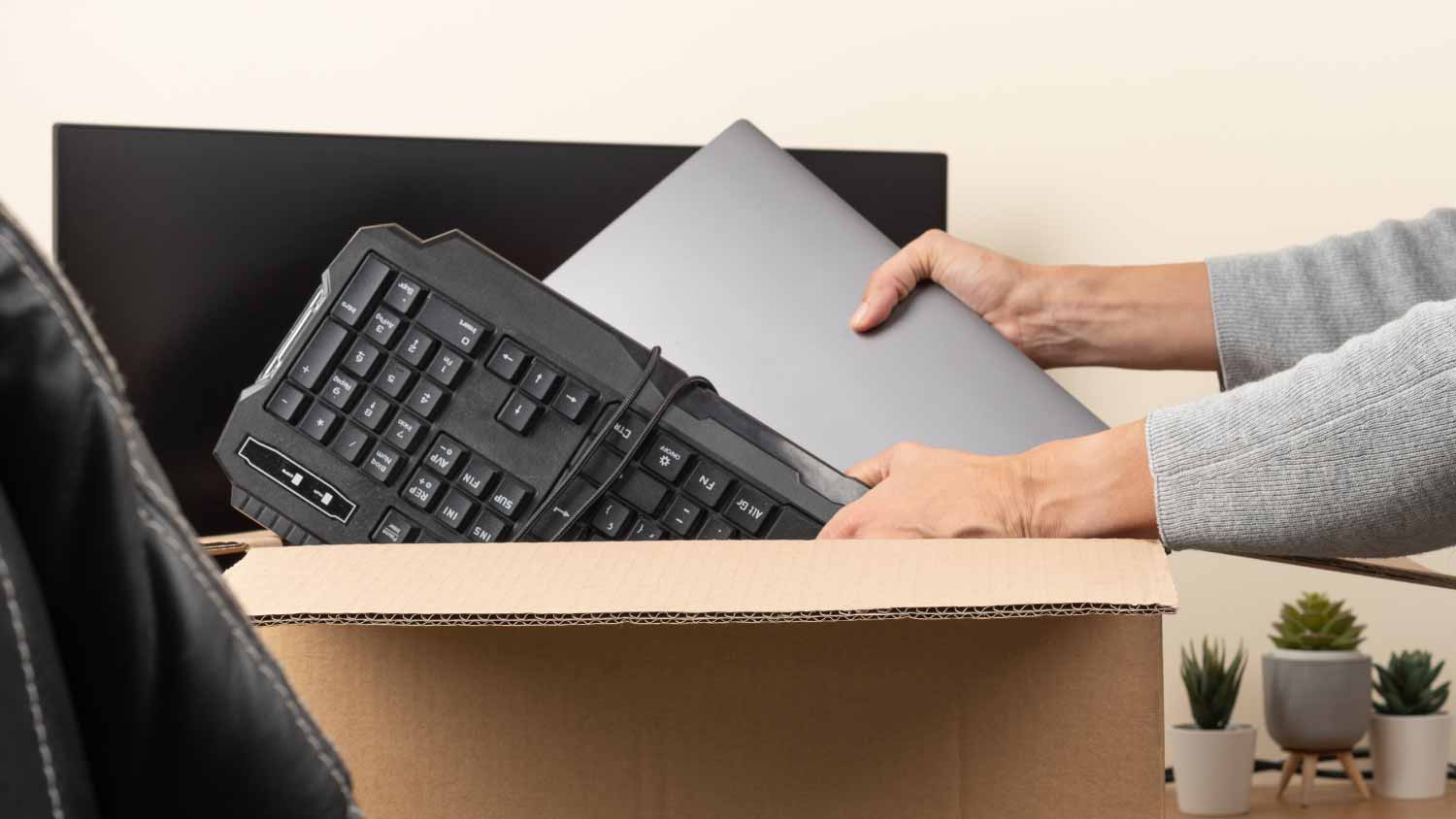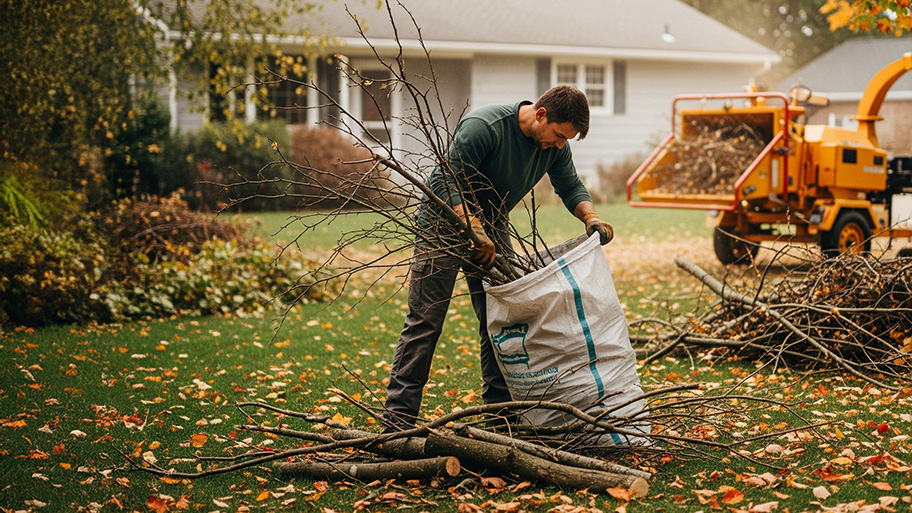
Factors like size, accessibility, and soil test results for oil leaks will determine the total cost of removing your oil tank.
Don’t just chuck your old AC in the trash


Though no one wants the hassle—or the expense—of replacing a dishwasher or water heater, these machines can break down, become outdated, or no longer suit our homes. But before you bring in the shiny new model, you need to know how to dispose of appliances the right way. Sometimes, you can’t simply drag your unwanted refrigerator out to the curb on garbage day because it contains dangerous materials and must be handled with care. To help you make room in your home, here are seven ways to get rid of those old appliances safely.
Depending on where you live, some appliances can be left on the curb for trash pickup. But your municipality may require you to pay a fee and schedule an appointment for someone to pick them up and haul them away. The larger your appliance, the more likely you will need to organize a special pick up.
Items like refrigerators and air conditioners—anything with freon, CFCs, or other refrigerant gases—are the ones that will need special care when putting them in the trash. The sanitation department needs to take extra steps to remove these chemicals to safely recycle or eliminate the appliance. Due to environmental regulations designed to prevent harm to the ozone layer, you should not attempt to remove any refrigerant gases on your own unless you are a technician trained in their disposal.
Alternatively, you could call in a junk removal company. This option is especially helpful if you’re disposing of appliances as part of a large cleaning or moving operation. You could either have the junk removal service haul the appliances away directly, or you could calculate the cost to rent a dumpster for a hauling service to take away when you’re finished.
Instead of tossing them in the trash, your appliances can go through the recycling process to find new life. In addition to being better for the environment than allowing appliances to sit in a landfill, recycling is often an easier and less expensive process than going through a municipal or professional pickup. Some organizations will even incentivize customers to choose the recycling option by offering rebates. Contact your local recycling center to find out what their policies are, like whether you need to dismantle or remove doors from your appliances before you schedule pick up. Sometimes, your only option is to drop off your items at the facility, so enlist the help of a friend to haul that washing machine.

If your appliances are in working order, you don’t have to trash them. Many people, like college students and first-time homeowners, need items like ovens, clothes dryers, or water heaters but may not be able to afford them. Consider taking the donation route and gifting your appliances to a local charitable organization or someone you know locally.
Churches and shelters often run donation drives, some of which will take your appliances. They may even haul away large items like refrigerators at no charge or less than the cost of professional junk removal. From there, these non-profit organizations can either sell the appliances to raise money or directly gift them to those in need.
Some retailers offer deals for customers to trade in their old appliances for bargain prices on newer models. Some of these companies may even uninstall and pick up the old model for a fee or free of charge as part of a membership program. These services are a fantastic option for saving both time and money when offered as a convenience for purchasing a new appliance.
Be sure to check any warranty you may have received on your appliances to determine whether you are eligible for a trade-in. Even if you’re not, the retailer may offer you the services of a qualified technician who can either repair your appliance or tell you how to dispose of it locally.

Gas companies, water utilities, and electric companies are often glad to take unwanted stoves, water heaters, freezers, or other large appliances to either properly dispose of them or donate them. In return, you will receive a rebate on your next utility bill, a credit for the purchase of your next appliance, or even cash.
Check with your utility authority to see if your appliance is eligible for a pickup, which may be performed at no charge. For smaller appliances, many utility companies will also sponsor drop-off events that allow you to bring your device to a location and turn it in there. These events will sometimes also take large items if you’re willing to haul them or hire someone to do that for you.
If you’re particularly wondering how to dispose of a water heater, their copper and brass components make them prime candidates for your local scrap metal buyer. Other large appliances made primarily from metal also qualify, though. Call a scrap company to ask whether they want to take your items. You can also check which ones will be worth the most.
Not only will these services properly dispose of the appliance, some may even haul the item away for you. And you’ll make a bit of money in the process. The larger and older the appliance, the more metal available for the scrap buyer, and the more money you could potentially walk away with.
You can list your appliances for sale, provided they are either in working order or you can find a buyer willing to repair them. Online marketplaces have sections for selling used appliances like refrigerators, ovens, washers and driers, and more. Alternatively, organizations like Habitat for Humanity will sell used appliances to those in need, so consider checking out their policies as well.
From average costs to expert advice, get all the answers you need to get your job done.

Factors like size, accessibility, and soil test results for oil leaks will determine the total cost of removing your oil tank.

Mattresses are considered hazardous waste, so you’ll likely have to pay disposal fees. Use this guide on mattress removal costs to see what your total will be.

Need to get rid of paint, solvents, or other chemicals? Use this guide on hazardous waste disposal costs to see what professional removal will cost.

If a tree has fallen in your yard, you’ll need to get rid of the wood. Here are several ideas for tree log removal and how to dispose of tree branches.

When hiring yard waste removal services, consider the scope of your project, your budget and the season.

Many homeowners wonder if PVC is recyclable since so much of it is found throughout our households. Here’s how to dispose of those pipes and tubes correctly.